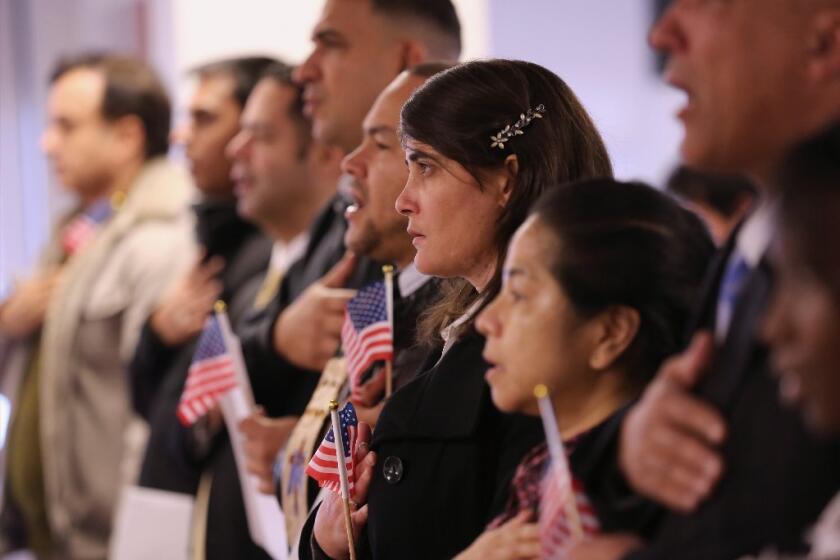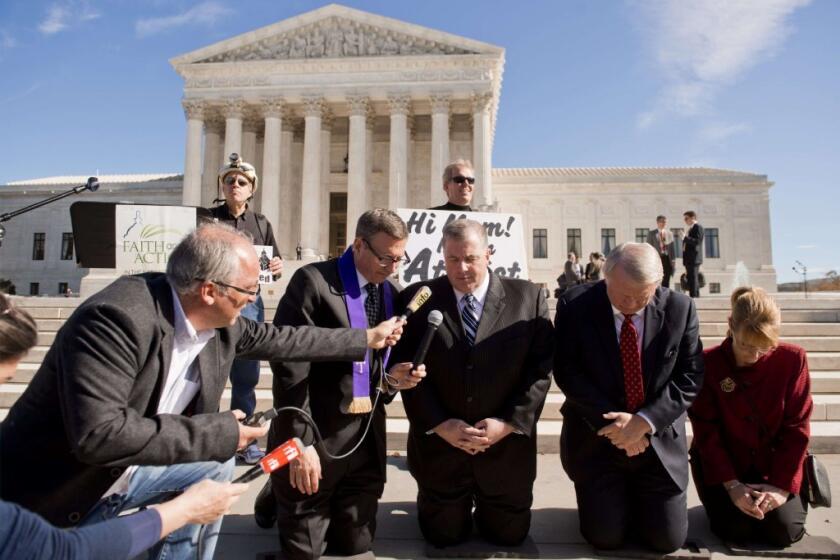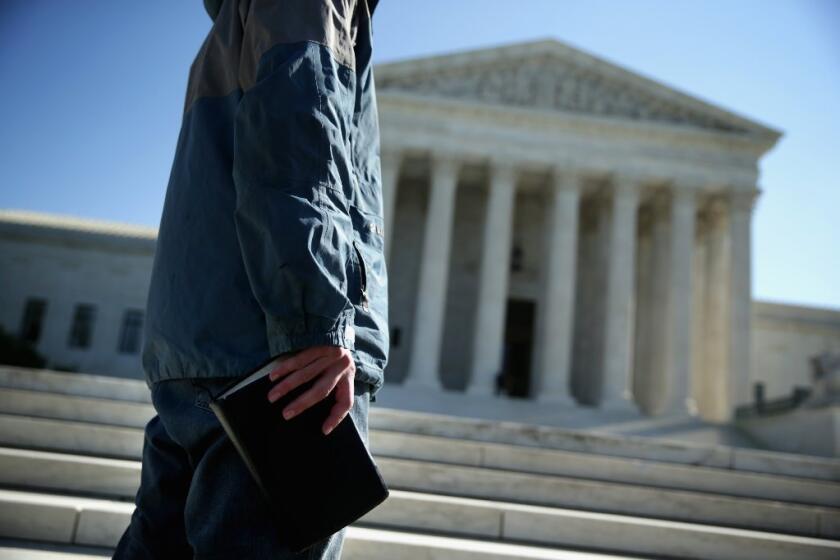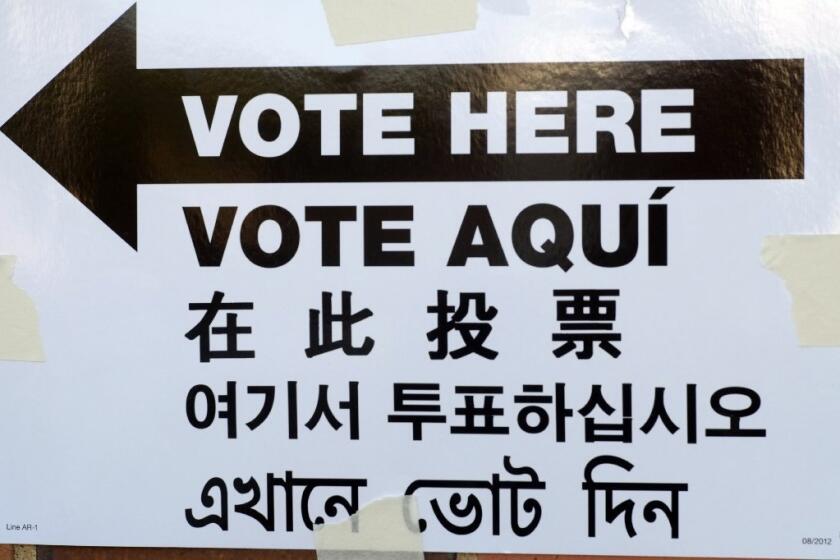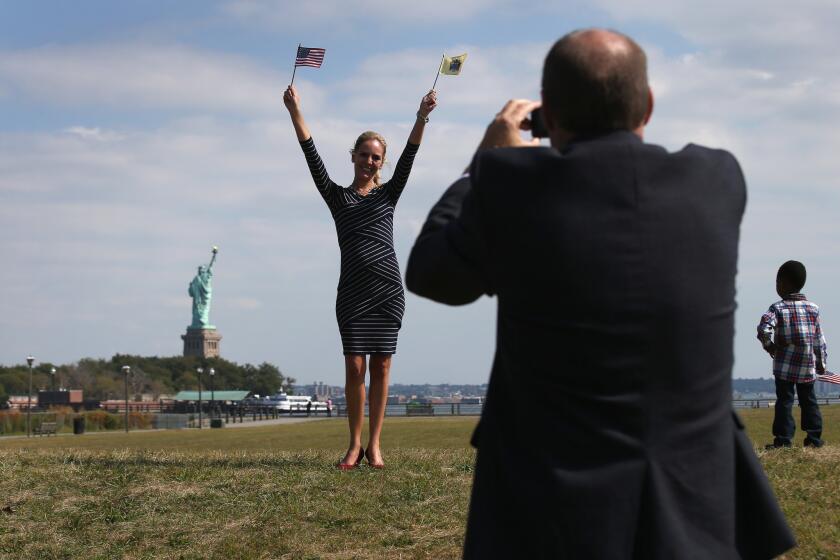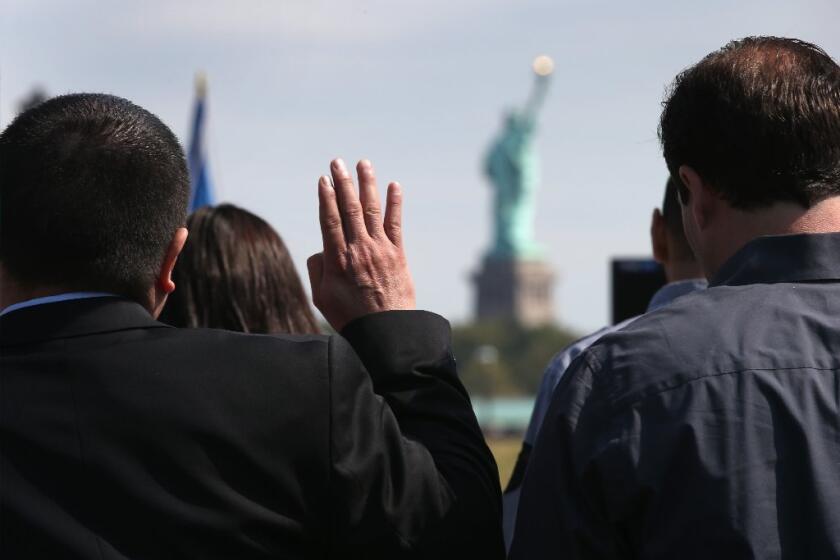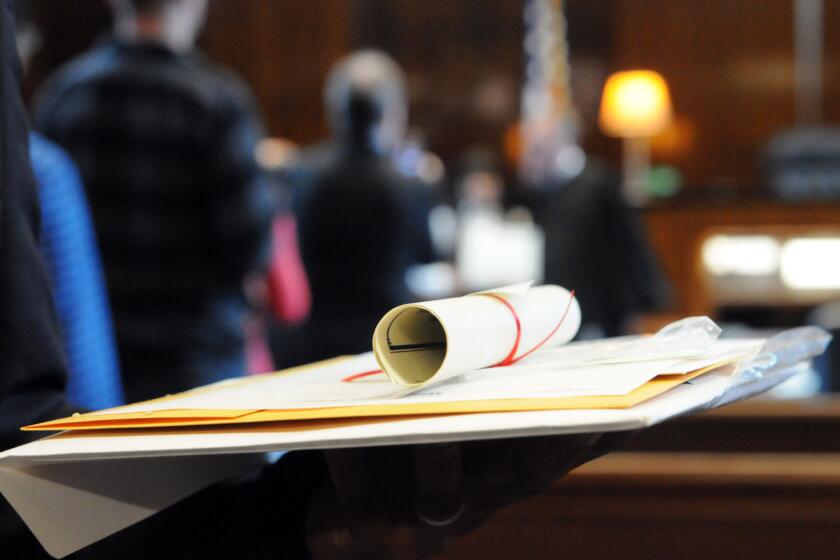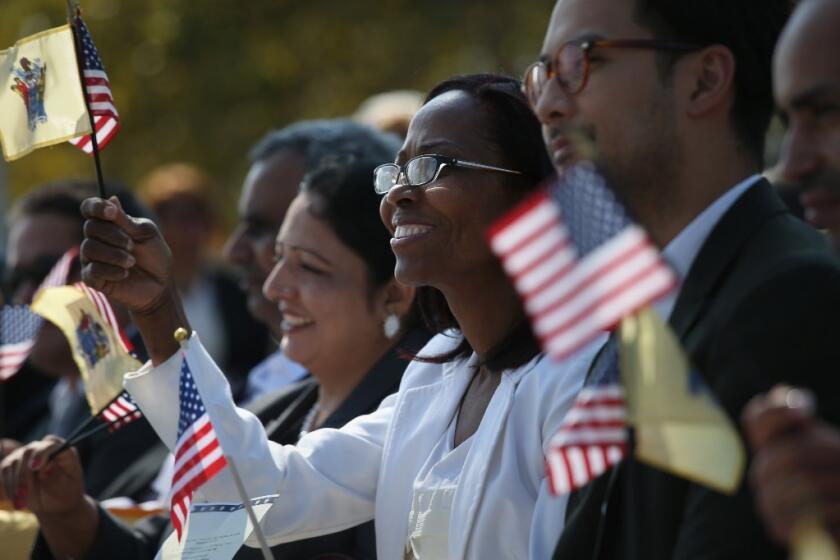Opinion: The 21st century citizen
The idea of citizenship in America is under pressure from many sides. Immigration has created a large population of residents outside the boundaries of citizenship, cultural blending has produced many Americans with loyalties to other nations, and corporations have come to enjoy some of the privileges once reserved for individual citizens. Those and other aspects of the changing nature of citizenship are the subjects of The 21st Century Citizen, a project that originates in a series of editorials by The Times editorial board and broadens here to include contributions by other writers and thinkers on the questions they raise.
We also put this core question — What does it mean to be a citizen? — to a range of Southern Californians. Here is a series of video interviews chronicling their views and personal stories.
Want to join the conversation? Share your thoughts, rebuttals and experiences with us at [email protected].
Follow the conversation on Twitter at #21stCenturyCitizen
- 1
This year, in criticizing U.S. firms that moved their headquarters to lower-tax countries, President Obama said that corporate executives are paid not only to maximize profits but also to be “good corporate citizens.”
Dec. 30, 2014
- 2
In 1954, when the Supreme Court ruled that segregated public schools were unconstitutional, Chief Justice Earl Warren emphasized the importance of public education as a crucible for good citizenship.
Dec. 29, 2014
- 3
Before becoming a naturalized U.S. citizen, immigrants must take an oath that says, in part, “I hereby declare, on oath, that I absolutely and entirely renounce and abjure all allegiance and fidelity to any foreign prince, potentate, state or sovereignty, of whom or which I have heretofore been a subject or citizen.”
Dec. 26, 2014
- 4
The contemporary immigrant rights movement has commanded attention through civil disobedience, student walkouts and intensive lobbying.
Dec. 22, 2014
- 5
As of Jan. 1, 2012, an estimated 13.3 million lawful permanent residents lived in the United States, and 8.8 million of them were eligible to apply for U.S. citizenship but had not done so.
Dec. 21, 2014
- 6
To the editor: You bring up some very compelling arguments for voting rights for noncitizens who are in this country legally and pay local, state and federal taxes. ( “Should non-citizens vote?”
Dec. 23, 2014
- 7
There are certain topics on which our letter writers and online commenters talk past the author of the piece who prompted them to respond.
Dec. 9, 2014
- 8
Belief in God is obviously not a legal requirement for U.S. citizenship.
Dec. 7, 2014
- 9
The Times’ meditations over the last several weeks on what U.S. citizenship means in the 21st century -- exploring topics such as dual nationality, byzantine immigration laws, permanent residency versus citizenship and, most recently, English proficiency -- have elicited mostly thoughtful, measured responses from readers.
Dec. 2, 2014
- 10
The terms “American” and “U.S. citizen” are used interchangeably, but it is widely understood that there is more to being an American than possessing citizenship.
Nov. 30, 2014
- 11
The United States has always had a “path to citizenship.”
Nov. 26, 2014
- 12
To Americans, the rules of citizenship can seem simple: You’re a member of this nation either by birth or naturalization.
Nov. 21, 2014
- 13
Naturalization ceremonies are the stock in trade of American news organizations: the speeches, the number of countries represented among the applicants and the pictures of newly minted Americans waving miniature American flags.
Oct. 29, 2014
- 14
Until this week, the letters responding to our editorial series exploring the meaning of U.S. citizenship in the 21st century have nearly all been so thoughtful and civil for a topic that stirs great emotion.
Oct. 29, 2014
- 15
Any child born in the United States is automatically a U.S. citizen, even if his or her parents are in the country temporarily or illegally.
Oct. 26, 2014
- 16
It isn’t enough merely to legalize the millions of undocumented residents in this country, The Times’ editorial board wrote in the latest installment of its series examining the meaning of citizenship in the U.S. today.
Oct. 21, 2014
- 17
To most Americans, it may seem obvious that someone permanently residing in the United States should be able — and should desire — to become a U.S. citizen.
Oct. 19, 2014
- 18
In an editorial Sunday, The Times posed several questions -- on the importance of English proficiency, whether dual nationalities should be recognized, if a path to citizenship is the only way to legalize millions of undocumented immigrants and more -- that go to the heart of what it means to be an American citizen in the 21st Century.
Oct. 7, 2014
- 19
In recent years, the concept of U.S. citizenship has figured in public debate largely in connection with immigration reform.
Oct. 4, 2014


